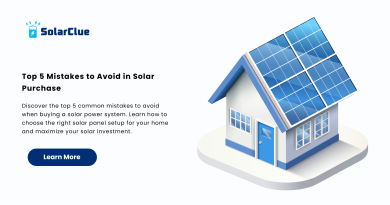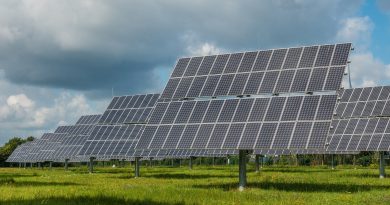Can You Put Solar Panels On Clay Tile Roof?
Installing solar panels on a clay tile roof involves unique challenges and considerations that differ from other roof types. This guide covers everything you need to know, from assessing the suitability of your roof to selecting the right mounting system, ensuring a secure and efficient installation.
Table of Contents
- 0.1 1. Assessing Clay Tile Roof Suitability for Solar Panel Installation
- 0.2 2. Understanding Different Types of Clay Tile Roofs
- 0.3 3. Preparing the Clay Tile Roof for Installation
- 0.4 4. Choosing the Right Solar Panel Mounting System for Clay Tile Roofs
- 0.5 5. Installation Techniques and Safety Precautions
- 0.6 6. Potential Challenges and Troubleshooting Tips
- 0.7 7. The Impact of Clay Tile Roofs on Solar Panel Performance
- 0.8 8. Government Regulations and Building Codes for Clay Tile Roof Solar Installations
- 0.9 9. Case Studies of Successful Solar Panel Installations on Clay Tile Roofs
- 0.10 10. Cost Considerations and Payback Periods for Clay Tile Roof Solar Systems
- 1 FAQs About Installing Solar Panels on Clay Tile Roofs
- 2 Table: Comparison of Solar Panel Mounting Systems for Clay Tile Roofs
- 3 Conclusion
1. Assessing Clay Tile Roof Suitability for Solar Panel Installation
Before installing solar panels on a clay tile roof, it’s essential to assess the roof’s suitability:
- Roof Condition: Inspect the roof for any damaged or cracked tiles. It’s important to repair or replace these before installation to prevent future issues.
- Structural Integrity: Ensure the roof structure can support the additional weight of the solar panels and mounting hardware. This may require consultation with a structural engineer, especially for older buildings.
- Roof Age: Consider the age of the roof. If the roof is nearing the end of its lifespan, it might be wise to replace it before installing solar panels.
2. Understanding Different Types of Clay Tile Roofs
Clay tile roofs come in various styles, each with specific installation considerations:
- Spanish Tiles: These curved tiles are commonly found in Mediterranean-style homes. Installation requires careful handling to avoid cracking and breaking.
- Flat Tiles: These tiles provide a more uniform surface, making them slightly easier to work with but still requiring careful installation techniques.
- Interlocking Tiles: These tiles interlock with one another, providing additional stability but requiring precise placement during installation to maintain the integrity of the roof.
3. Preparing the Clay Tile Roof for Installation
Proper preparation is key to a successful installation:
- Cleaning: Clean the roof to remove dirt, debris, and moss, which can affect the mounting system’s adherence and the panels’ efficiency.
- Sealing: Apply a waterproof sealant to the tiles to prevent water infiltration, especially if the tiles are porous or cracked.
- Reinforcement: In some cases, additional reinforcement may be needed to support the solar panels. This can include adding underlayment or strengthening roof trusses.
4. Choosing the Right Solar Panel Mounting System for Clay Tile Roofs
Selecting the appropriate mounting system is crucial:
- Tile Hook Mounts: These mounts are designed to fit underneath the clay tiles, providing a secure anchor point without drilling through the tiles themselves. They are ideal for maintaining the integrity of the roof.
- Flashing Mounts: Flashing is used to seal around the mount penetrations, ensuring water doesn’t seep through the roof. This method is critical for preventing leaks.
- Rail-Based Systems: These systems provide flexibility in panel placement and are compatible with various roof types, including clay tiles.
5. Installation Techniques and Safety Precautions
Installing solar panels on a clay tile roof requires specialized techniques:
- Tile Removal and Replacement: In some cases, tiles need to be temporarily removed to install the mounts. It’s crucial to replace them carefully to avoid cracking.
- Drilling and Mounting: When drilling into the roof, use a drill bit designed for tile to minimize the risk of cracks. Mount the hooks securely and ensure they are evenly spaced.
- Safety Precautions: Working on a clay tile roof can be dangerous due to the risk of slipping and the fragility of the tiles. Always use proper safety gear, including harnesses and non-slip shoes, and consider working with a professional installer.
6. Potential Challenges and Troubleshooting Tips
Common challenges and solutions include:
- Cracked Tiles: If a tile cracks during installation, replace it immediately to avoid leaks. Keep spare tiles on hand for quick replacements.
- Water Leakage: Ensure that all mounting points are properly sealed with flashing to prevent water infiltration.
- Alignment Issues: Carefully align the panels and mounts to ensure they are straight and secure, which is particularly important for aesthetics and performance.
7. The Impact of Clay Tile Roofs on Solar Panel Performance
Clay tile roofs can affect the performance of solar panels in several ways:
- Reflection and Absorption: Clay tiles can reflect sunlight onto the panels, potentially increasing their efficiency. However, they can also absorb heat, which may require ventilation beneath the panels to prevent overheating.
- Panel Orientation: The curved shape of some tiles can affect the angle at which panels are mounted, so proper alignment is essential to maximize solar exposure.
8. Government Regulations and Building Codes for Clay Tile Roof Solar Installations
Installing solar panels on a clay tile roof must comply with local building codes and regulations:
- Permits: Check with your local building authority to determine if you need a permit for your installation. In some cases, specific requirements must be met for installations on historic buildings or in certain neighborhoods.
- Inspection Requirements: After installation, an inspection may be required to ensure that the system is up to code and safely installed.
- Zoning Restrictions: Some areas may have restrictions on the visibility of solar panels from the street, especially in historic districts.
9. Case Studies of Successful Solar Panel Installations on Clay Tile Roofs
- Residential Installation in California: A homeowner successfully installed a 5 kW solar panel system on their Spanish clay tile roof using tile hook mounts and flashing. The installation required minimal tile removal and was completed without any leaks or damage.
- Commercial Building in Florida: A commercial property with a flat clay tile roof installed a 50 kW solar system. The installation involved reinforcing the roof structure and careful alignment of the panels to maintain the building’s aesthetic.
10. Cost Considerations and Payback Periods for Clay Tile Roof Solar Systems
The cost of installing solar panels on a clay tile roof can be higher than on other roof types due to the additional labor and specialized equipment required:
- Installation Costs: Expect to pay a premium for labor, as clay tile roofs require more careful handling and often take longer to install.
- Maintenance Costs: Clay tile roofs may require more frequent inspections and maintenance to ensure that the tiles remain intact and the system continues to function efficiently.
- Payback Period: While the initial costs may be higher, the energy savings from solar panels can still result in a reasonable payback period, typically ranging from 5 to 10 years, depending on energy costs and available incentives.
FAQs About Installing Solar Panels on Clay Tile Roofs
Q1: Can solar panels be installed on any type of clay tile roof?
A1: Yes, solar panels can be installed on most types of clay tile roofs, but the installation process and mounting system may vary depending on the tile style.
Q2: Will installing solar panels damage my clay tile roof?
A2: When done correctly, installing solar panels should not damage your clay tile roof. Using appropriate mounting systems and techniques minimizes the risk of damage.
Q3: How do I know if my clay tile roof can support solar panels?
A3: A professional assessment by a structural engineer or experienced installer can determine if your roof has the necessary structural integrity to support solar panels.
Q4: What is the best mounting system for solar panels on clay tile roofs?
A4: Tile hook mounts combined with flashing are often the best option for clay tile roofs, as they provide a secure anchor point without compromising the integrity of the tiles.
Q5: Do I need special permits to install solar panels on a clay tile roof?
A5: Permit requirements vary by location, so it’s important to check with your local building authority. Some areas may have specific regulations for clay tile roofs.
Q6: How much does it cost to install solar panels on a clay tile roof?
A6: The cost can be higher than for other roof types due to the specialized labor and materials required. On average, expect to pay an additional 10-20% compared to an asphalt shingle roof.
Q7: What maintenance is required after installing solar panels on a clay tile roof?
A7: Regular inspections are recommended to check for any cracked tiles or issues with the mounting system. Cleaning the panels and ensuring the roof remains sealed are also important.
Q8: Can solar panels be installed on a historic clay tile roof?
A8: Yes, but additional considerations and approvals may be needed, especially in protected or historic areas. It’s important to work with a contractor experienced in historic preservation.
Table: Comparison of Solar Panel Mounting Systems for Clay Tile Roofs
| Mounting System | Pros | Cons | Best For |
|---|---|---|---|
| Tile Hook Mounts | Minimal roof penetration, preserves tile integrity | May require tile removal, higher cost | Spanish or curved clay tile roofs |
| Flashing Mounts | Excellent waterproofing, secure attachment | Requires precise installation, potential for leaks if not done correctly | Flat clay tile roofs |
| Rail-Based Systems | Flexibility in panel placement, robust support | More complex installation, may require additional reinforcement | Large or commercial installations |
Conclusion
Installing solar panels on a clay tile roof requires careful planning, the right tools, and specialized knowledge to ensure a successful and long-lasting installation. By understanding the unique challenges and selecting the appropriate mounting system, you can enjoy the benefits of solar energy while preserving the aesthetic and structural integrity of your clay tile roof. Whether you’re a homeowner or a commercial property owner, this guide provides the insights you need to make informed decisions and achieve a seamless solar panel installation on your clay tile roof.



